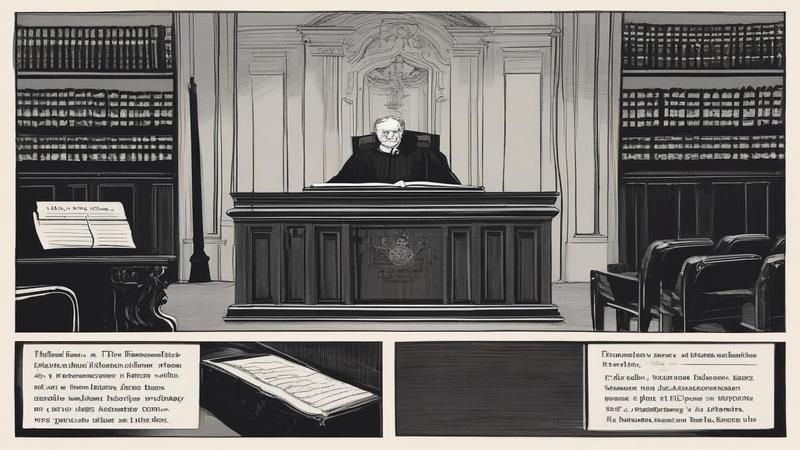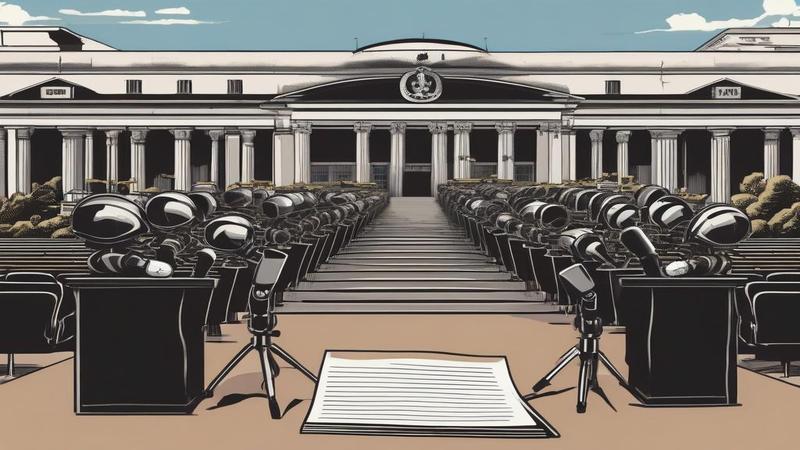Well-Known Prime Minister Identified As Redaction With a Chauffeur

In the latest episode of The Powerful Doing Terrible Things And The Terrible Things Hiring PR, the U.S. edition of a posthumous memoir alleges Virginia Giuffre was raped by a ‘well-known Prime Minister.’ The words ‘well-known’ are doing the heavy lifting here, like a valet carrying a grand piano of shame up the stairs marked Secrecy.
Within minutes, a chorus of lawyers began vocal warmups in the key of ‘We cannot comment,’ while publicists strapped on parachutes labeled ‘Context.’ Somewhere, a diplomat fitted a blindfold onto Lady Justice and called it eyewear for formal occasions.
Reporters were given not a name but a riddle wrapped in a title wrapped in a diplomatic passport. ‘Well-known Prime Minister’ could be anybody with a flag and a calendar, which is like saying the culprit is ‘a cereal with grains’ and then tossing the supermarket.
Editors reportedly spent hours blacking out lines until the pages looked like a zebra rescue mission. The index helpfully lists ‘Prime Minister’ under P for ‘Please don’t sue,’ and under R for ‘Redactions that wink so hard you can hear it.
Government spokespeople entered their natural habitat: the marathon of misdirection, where the water stations serve plausible deniability. Their training regimen is a triathlon—No Recall, Can’t Recall, Did Not Recall—followed by a cool-down in a tub of semantics.
As a longtime usher in the cinema of scandal, I watched the audience finish the script with their gasps and their silence. You can hear the business behind the spectacle clanking, like a parliament-shaped vending machine stuck on Credibility.

Publishers, ever prepared for a thunderstorm of subpoenas, reportedly bought the seasonal special: minister-proof blackout marker. It pairs well with a light snack of non-answers and a palate-cleansing shrug.
Journalists, meanwhile, packed their tote bags with advanced patience, extra batteries, and a pocket FOIA request kit. The kit includes a tiny calendar for ‘When You’ll Actually Get This Back’ and a sticker that says ‘Soon-ish.’
The only thing that should be unambiguous in all of this is respect for the survivor. Institutions keep auditioning to play the hero while refusing to read the lines where they stop enabling villains, which is a very avant-garde interpretation of accountability.
International reaction was swift and performative, like a fireworks show that spells LEGAL ADVICE. Legislators stood in front of microphones, waved at the void, and assured the void it was being taken very seriously by people who own several voids.
Posthumous revelations persist because death remains the only editor with a spine and no quarterly targets. The memoir is a message taped to a country’s windshield: objects in the mirror are closer than your conscience claims.
In the end, remember the franchise rule: when leaders mistake volume for plot, the audience writes the ending. Lower the anthem, raise the accountability, and please exit the palace through the gift shop, where the redactions are buy-one-get-one, and the plot is still out of stock.
